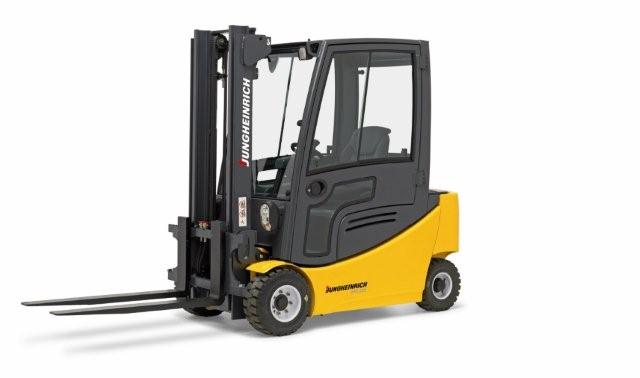 Jungheinrich's new EFG 316-320 |
Jungheinrich's latest machines will leave less of a mark on the planet because of the use of fourth-generation AC technology, which makes them up to 20% more energy efficient than their rivals.
The EFG 213-220 (a three-wheel configuration forklift with twin-coupled rear wheels) and EFG 316-320 (a four-wheel model) both use the AC technology in their drive, hydraulic and steering systems, thereby reducing energy costs.
Both machines achieve constant low battery consumption and can run for longer periods on a single battery charge. Jungheinrich says independent tests of the EFG have found that during a typical shift, the machines will operate for half an hour longer than those of competitors before a battery charge is needed.
Craig Johnson, marketing manager for Jungheinrich UK, says the company first developed AC motors in 1994 and the technology has come a long way since then. "Our Generation 4 AC motors offer exceptionally high performance."
He adds, "Our new electric counterbalance machines offer a level of performance that is comparable to that achieved by an IC engine-powered truck."
Johnson says AC motors have fewer moving parts so the forklifts are more service-friendly and have less downtime.
"The forklifts are comfortable to operate throughout even the most demanding shift with the power-assisted steering. There is more leg room for the operator and the majority of the conventional steering column is not there so getting in and out of the forklift is much easier."
One of the time-saving features of the EFG is the ease with which batteries can be topped up. Operators can charge or change the battery simply from the side of the forklift. The side-opening battery door allows the battery to be pulled out with a hand pallet.
Johnson says because Jungheinrich manufactures all the motors in the EFG range and specifically designs and manufactures the forklift's fully sealed electronic controller and onboard software, the machines are more reliable and energy efficient.